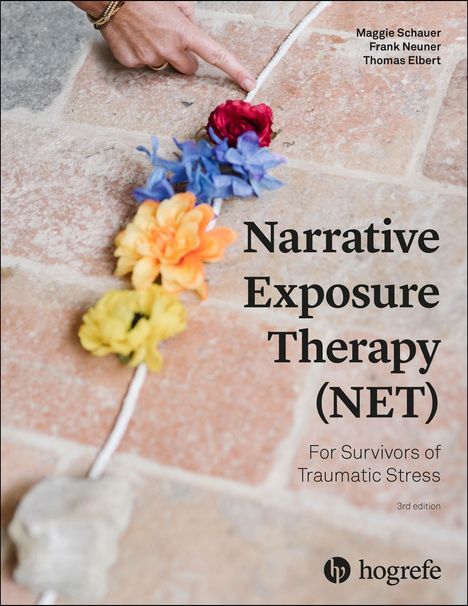Maggie Schauer: Narrative Exposure Therapy (NET) For Survivors of Traumatic Stress, Flexibler Einband
Narrative Exposure Therapy (NET) For Survivors of Traumatic Stress
- Verlag:
- Hogrefe Publishing GmbH, 02/2025
- Einband:
- Flexibler Einband
- Sprache:
- Englisch
- ISBN-13:
- 9780889375956
- Artikelnummer:
- 11921089
- Umfang:
- 220 Seiten
- Nummer der Auflage:
- 25003
- Ausgabe:
- 3rd edition 2025
- Gewicht:
- 674 g
- Maße:
- 277 x 213 mm
- Stärke:
- 15 mm
- Erscheinungstermin:
- 10.2.2025
- Hinweis
-
Achtung: Artikel ist nicht in deutscher Sprache!
Klappentext
Extensive evidence shows that six to twelve sessions of Narrative Exposure Therapy (NET) can be sufficient to provide considerable relief from events such as organized violence, torture, war, rape, and childhood abuse. The new manual is clearly structured and easy to follow, and includes new figures that help illustrate and guide the reader through the steps of NET. The theoretical sections offer a solid basis for carrying out the therapeutic intervention. The reader will learn the NET approach step by step, with robust and straightforward practical advice and tools, including how to deal with challenging situations, e. g., how to go deeper when faced with the challenging dynamics of remembering trauma, and how to manage dissociation, avoidance, strong emotions, lost memories, or the sudden emergence of unexpected recollections from the past. NET therapy conversations and resulting narrations from trauma scenes demonstrate the level of Narrative Exposure details required. Finally, the importance of reading back the testimony to the individual is explained. A new section on the variations of NET details how to offer KIDNET for children and young people, FORNET for victims of trauma who are perpetrators of violence, NETfacts for communities, and ElderNET for older adults as well as online NET (eNET). Experienced therapists also get an idea of how NET is typically trained and how to facilitate NET exercises. Downloadable resources for use in clinical practice include handouts, examples of narrations, and a checklist for adverse life events. This book is an invaluable resource for clinical psychologists, psychotherapists, psychiatrists, counselors, crisis workers, social workers, health workers, and physicians.

